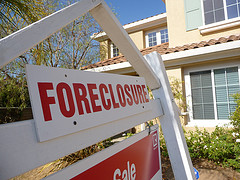
Short Sale or Foreclosure?
The decision to do a short sale or to let your home go to foreclosure, is not an easy one. While for some homeowners, it is easier to throw up your hands and let the bank take your home, that might not be the wisest thing to do.
Benefits of a Short Sale
- You are in control of the sale, not the bank.
- You may sleep better at night knowing who is buying your home.
- Your home sale will be handled like any other home sale.
- You will be eligible, under Fannie Mae Guidelines, to buy another home in 2 years instead of 5 years.
- If your credit report does not reflect a 60 day late pay, under Fanny Mae guidelines, you will be eligible to buy another home immediately.
Benefits of a Foreclosure
- No mortgage payments to make
- The home is yours until the foreclosure is final
- No strangers touring your home
- Some banks offer "cash for keys" after a public sale
How do Short Sales and Foreclosures affect your credit score?
A short sale may be considered to be a derogatory mark on your credit even though credit bureaus do not show the word "short sale" on your credit report. It may say "paid in full for less than agreed" or "settled for less," among other categories. Some clients have reported negative FICO score drops from 50 points to 130 points. Major point drops are typically due to being in default, meaning you have fallen behind on your payments.
Alternatively, a foreclosure will generally remain on your credit report for 7-10 years and your credit score will drop by over 150 points. If a prospective employer runs a credit check on you, your job application may be denied if you have a foreclosure on your record.
Which one is better?
As you can see there are a lot of potential problems with both a short sale and foreclosure. So, which one is better? Short sale wins every time. In all aspects, a short sale is more beneficial to you, the home owner, as well as the bank. It saves them money from legal fees and paying for the foreclosure process, and it also saves your credit report, potential taxes, and deficiency judgments.
If you’re facing a financial hardship and think you may need to seek a short sale, talk to a Realtor ASAP to get the process started. The faster the better. Don’t wait until the sheriff is knocking on your door to repossess your home.
photo by: respres




 Student loans are a necessary evil for most people. In order to get a good education after High School, you apply for scholarships, grants, and any other sort of financial aid available. If you are very lucky, you have a college fund set up and ready to pay for that fancy education. If you are not so lucky, you break down and take out a Student Loan.
Student loans are a necessary evil for most people. In order to get a good education after High School, you apply for scholarships, grants, and any other sort of financial aid available. If you are very lucky, you have a college fund set up and ready to pay for that fancy education. If you are not so lucky, you break down and take out a Student Loan. In order to pay off credit card debt successfully, it is important to commit yourself to improving your financial situation for the long term. There is no such this as a quick fix. Getting out of debt takes dedication and a realistic plan. With so many options to choose from, it can be overwhelming to figure out where to begin, where to seek advice, and whether you should tackle the debt on your own or enlist the services of a debt relief provider. Let's look at your options.
In order to pay off credit card debt successfully, it is important to commit yourself to improving your financial situation for the long term. There is no such this as a quick fix. Getting out of debt takes dedication and a realistic plan. With so many options to choose from, it can be overwhelming to figure out where to begin, where to seek advice, and whether you should tackle the debt on your own or enlist the services of a debt relief provider. Let's look at your options.




